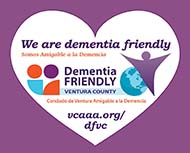By: Sherry Netherland, Director of Special Projects for Assisted Healthcare Services
FALL FACTS
- Falls are the most common cause of hospitalizations and injuries for older adults over 65.
- 90% of the 300,000 hip fractures and 250,000 wrist fractures per year are the result of falls.
- 65% of adults over 60 confess to a fear of falling and if they have fallen before, 92% of those adults will fear falling again.
- Fear of falling again, or Post Fall Anxiety Syndrome, is a serious problem among older adults. It is a loss of confidence in the ability to walk safely. As many as 56% of people over 75 will restrict their activities due to fear of falling. These self-imposed limitations can lead to further functional decline, depression, feeling of helplessness and social isolation.
Most Common Risks for Falls
- Uneven Terrain
- Dizziness (Vertigo)
- Fainting
- Environmental hazards, e.g., loose throw rugs, uneven sidewalks or high curbs, etc.
- Medications – people taking 4 or more medications, especially sedatives, anti-anxiety medications, and anti-depressants, are higher risk for falls. (NOTE: Continue to take all medications as directed by your physician.)
- Lack of flexibility for quick responses, or an inability to correct for an unexpected loss of balance
- Poor foot care
- Poorly fitting shoes or improper footwear
- Peripheral Neuropathy
- Improper use of walking aids such as walkers or canes
- Poor vision or poor lighting causing a collision with something in the dark
- Parkinson’s Disease
- Alzheimer’s Disease
- Stroke
How to Reduce Your Fall Risk
- Fitness. Fitness. Fitness. Exercise can reduce your risk of falling. Daily physical activity provides daily challenges for the body’s balance systems.
- Increase muscle strength, endurance, flexibility and motor control.
- Conditioning exercises including walking or other aerobic exercise.
- Wear proper footwear. Avoid flip-flops or other slip-on shoes. Avoid thick-soled, soft shoes if you have decreased sensitivity in your feet. Firm-soled shoes are best.
- Be sure your doctor is aware of ALL your medications, including those purchased over-the-counter.
- Keep the floors of your home clear of clutter and reduce other tripping hazards in your home.
- Have your vision checked.
If you feel that you or someone you know is at risk for falls, contact your family physician to review your medical history for possible causes and to discuss treatment options. Falls can be prevented. You may qualify for Medicare home health benefits, or you might decide that private duty nursing for safety and supervision is a sensible precaution. If you are in Southern California or the Phoenix Metro area, Assisted can help with their Fall Prevention Program.
Sherry Netherland is the Director of Special Projects for Assisted Healthcare Services, a Medicare certified, CHAP accredited home health agency with 7 branches in California and Arizona. She founded the Assisted Speakers Bureau and she speaks on a variety of healthcare related issues. To learn more about home health care and private duty nursing and how Assisted can help, www.assisted1.com/home_health_care.







